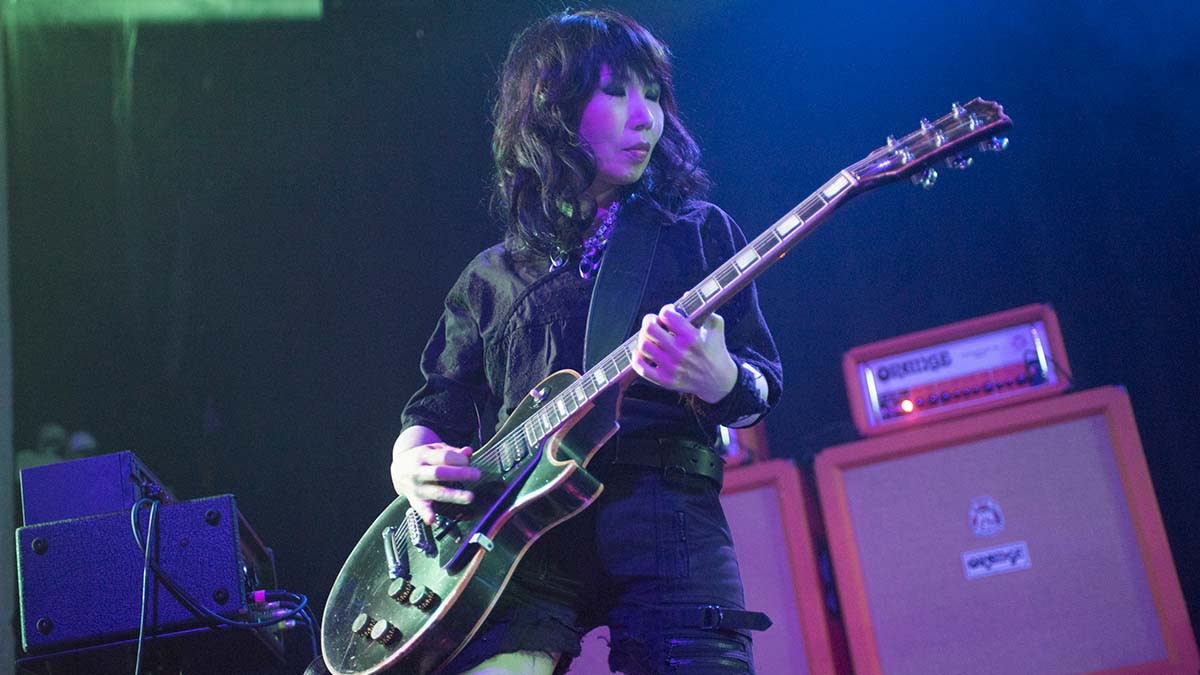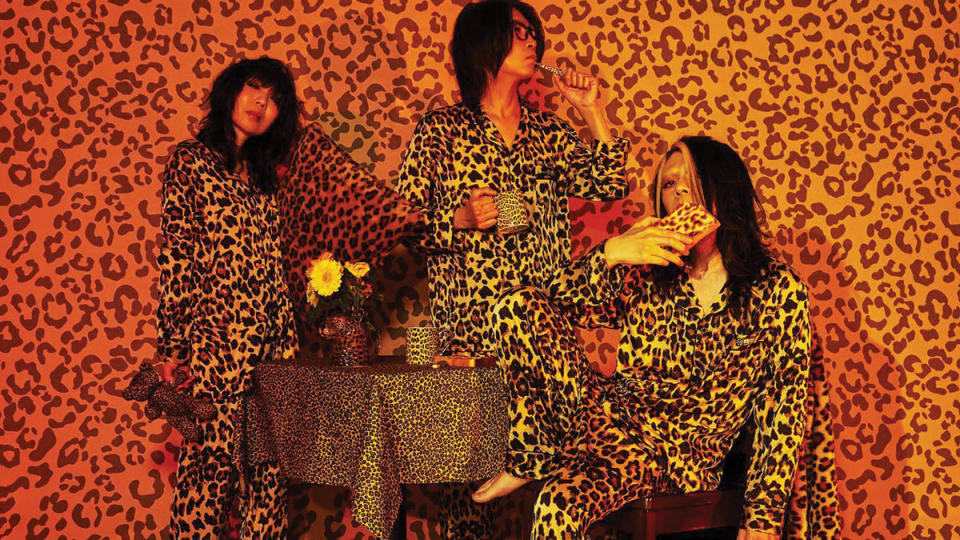“Even if there are only a few sounds, I try to play in a way that directly expresses my feelings and touches our hearts”: Boris guitarist Wata is an experimental rock legend – and three decades on, her playing is still impossible to pigeonhole

For more than 30 years, Wata and her band, Boris, have made a concerted effort to avoid explicit associations with any single genre. And, for the most part, despite critics continually hanging names like “experimental” and “doom” upon the Japanese group’s mantle, they’ve managed to accomplish that feat.
“I don’t really focus on continuing to push the limit or keep experimenting,” Wata tells Guitar World. “This band has occupied a big part of my life and has so much freedom. Each member is irreplaceable, and many things are naturally born from that relationship. Other than that, I’m greatly influenced by people around me, such as people we’ve collaborated with, people we’ve met and people whose music I’ve listened to.”
As a guitarist, Wata consistently straddles the razor-thin line between light and shade. That’s never been more apparent than on Boris’ latest record, Bright New Disease. But this time – and perhaps not shockingly – Wata and company have added a twist; they’ve collaborated with fellow alternative heroes, New York industrial act Uniform.
“Uniform was our support act band in 2019; that’s how we met them,” Wata says. “As we continued the tour, our friendship deepened, and at the same time, we would relate well to their attitude, way of thinking and perception of music. We were able to perform at the tour’s encore together.”
Beyond new music, for Wata and her bandmates in Boris, life will continue as it has since the group’s inception. Unshackled by the pandemic and still musically explorative, for Boris, the future is bright and the possibilities are boundless.
“Now that the pandemic is over, we’ve officially resumed tours and live performances,” Wata says. “So I’d love to see everyone. I want to perform in cities worldwide for as long as my physical strength lasts. It’s all because I get a lot of power from various city sceneries and audiences.”
Tell us about Bright New Disease.
“After touring with Uniform, we began talking about someday making music together. Shortly after, the pandemic hit, and we were immersed in the recording process.
“Once Boris had recorded about three albums, we naturally flowed into the process of making this collaboration. First Boris recorded the skeletal structure of the songs and sent it to them. We went back and forth over the internet, sending overdubbing and lyrics and completed Bright New Disease.”

How does your approach change when collaborating with another artist as opposed to working alone or with Boris?
“The method varies depending on the collaborator. We choose the best and most natural approach and create works together each time. It’s basically like being guided by sounds that are born and emerge.”
We may seem different on the surface, but Uniform's musical experience and knowledge are amazing, and they’re extremely fast and great at harmonizing the song’s imagery
How has your approach evolved from your early years?
“In the early days, we’d all go into the studio and work on the details, starting with the riffs. Once the songs were completed and the image of the album was ready, we’d book the recording studio for a few days and record. But starting about 20 years ago, we brought in Pro Tools and started recording ourselves.
“After that, we’d create songs by having multiple jam sessions (like a rough sketch), as though we were painting multiple layers to complete a portrait. When we think of something, we can record it right away.
“We have many partially made songs (in the midst of drawing). We’d always done them ourselves, but in recent years we’ve tried having other musicians or sound producers be a part of the music creation to create additional musical imagery.”
How do you feel Uniform’s style best complements that of Boris?
“We may seem different on the surface, but their musical experience and knowledge are amazing, and they’re extremely fast and great at harmonizing the song’s imagery. We expanded the image for the extreme side of music and ambient and new-wave-like music.”
You mentioned the surface differences. How did those differences affect the outcome of this album?
“Boris designs, records and self-produces, but Ben [Greenberg] from Uniform is also a sound engineer; he works on music until it reaches the listener. I learned from producing together that they are straightforward in making sounds and are good at creating sounds that could hurt if you could touch them.
“On the contrary, Boris is good at making more ambiguous music with more blur. The sound imagery of both types of music became the dynamics of this album and led to the novelty as a whole.”
What guitars did you use on Bright New Disease?
“We have three guitarists performing in this album. So you can distinguish the sound as mine; I used a Gibson Les Paul Custom, which I usually play. For Boris’ side of the recording this time, Takeshi played the riffs that would guide the guitars, and then I would add solos and spatial texture to it.”
What pedals and amps did you use?
“In live performances and recordings, I always use the Orange amp, an EarthQuaker Devices Hizumitas [Fuzz Sustainer] (my signature model) and a Roland Space Echo [RE-201]; those are the three main things. I added various pedals this time, but there were many, so I don’t remember which. Similar to the guitar I used, I used the same setting as usual, so you can tell that the sound is mine.”
Is there a song or solo on Bright New Disease that you like most or that best represents you as a player?
“In the intro of You Are the Beginning, I play a solo with long sustain, choking, slides and deep echo with a floating feeling. Even if there are only a few sounds, I try to play in a way that directly expresses my feelings and touches our hearts. Takeshi and Ben also have solos, but I’m sure you can tell the difference once you hear them.”
Translation by Kasumi Billington
Bright New Disease is out now via Sacred Bones.

